| | Israel strikes Gaza and imperils a fragile truce, OpenAI goes for-profit, and Bill Gates pushes back͏ ͏ ͏ ͏ ͏ ͏ |
| |   BEIJING BEIJING |   SEOUL SEOUL |   KUALA LUMPUR KUALA LUMPUR |
 | Flagship |  |
| |
|
The World Today | 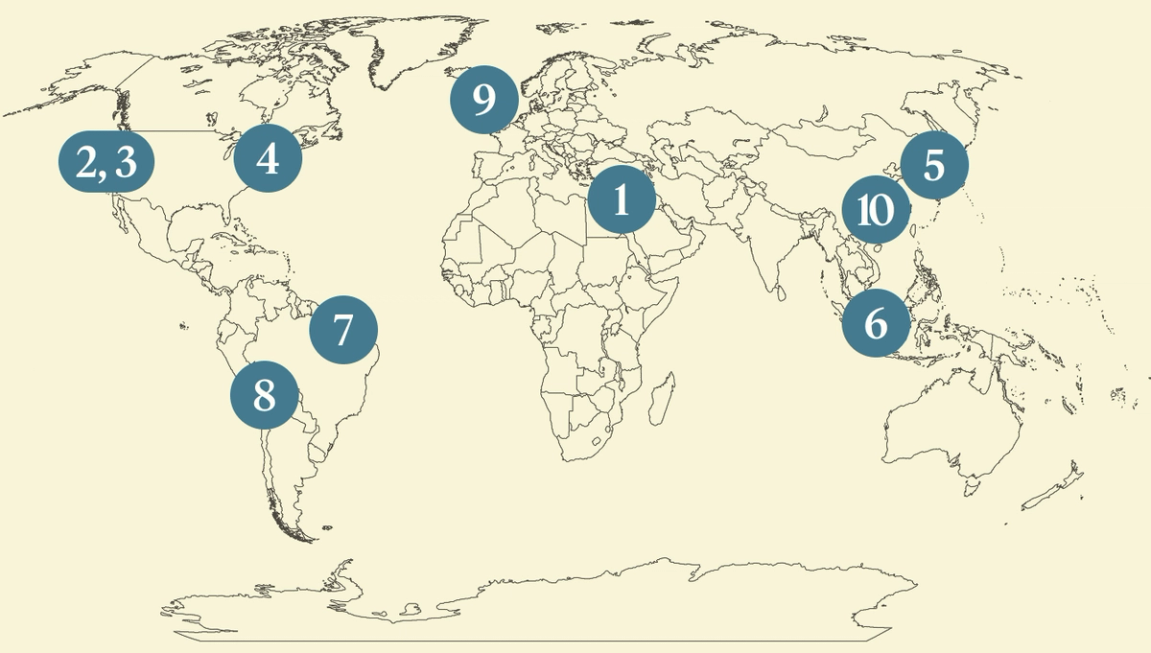 - Gaza truce in jeopardy
- OpenAI goes for-profit
- Nvidia’s pro-US pitch
- Confidence low, stocks high
- SK, US sign AI deal
- Trump, China, and SE Asia
- Bill Gates’ climate shift
- Woes in the Lithium Triangle
- Cyberattack hits UK economy
- China’s tech canon
 Black Sabbath gets the ballet treatment, and Wall Street becomes a stage drama. |
|
Israel strikes threaten Gaza truce |
 Search for deceased hostages. Haseeb Alwazeer/Reuters Search for deceased hostages. Haseeb Alwazeer/ReutersIsraeli Prime Minister Benjamin Netanyahu ordered “immediate and powerful” strikes on Gaza, putting the country’s ceasefire with Hamas in doubt. Tuesday’s announcement comes after Israel accused Hamas of violating the truce by firing on Israeli forces in Rafah and reneging on promises to return missing hostage remains. The strikes threaten to disrupt US President Donald Trump’s top diplomatic triumph of his second term; since the ceasefire took effect earlier this month, Washington has scrambled to contain flare-ups, pressuring both parties to adhere to the peace deal. The US vice president said Tuesday the “ceasefire is holding,” despite “little skirmishes here and there.” |
|
OpenAI completes for-profit pivot |
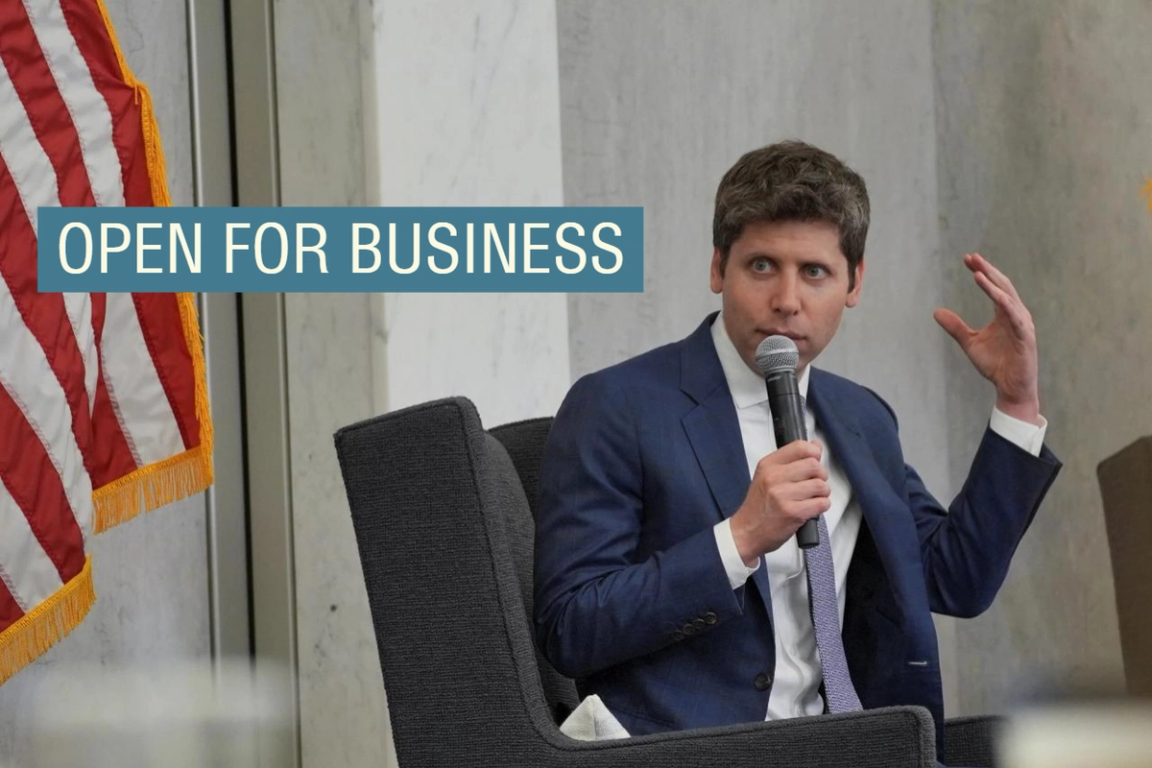 Ken Cedeno/Reuters Ken Cedeno/ReutersOpenAI completed its conversion into a for-profit company on Tuesday, clearing a major obstacle for a potential initial public offering. The long-awaited move — which pushed its partner Microsoft to a valuation above $4 trillion — follows a lengthy legal saga and brings a more traditional corporate structure to the startup. Similar to its rivals Anthropic and xAI, OpenAI now operates as a for-profit “public benefit corporation,” designed to create public good. CEO Sam Altman said the shift would make it easier to raise funds to speed up advanced research: He said OpenAI is on track to debut an AI-powered intern-level research assistant by next fall. |
|
Huang makes pro-America push |
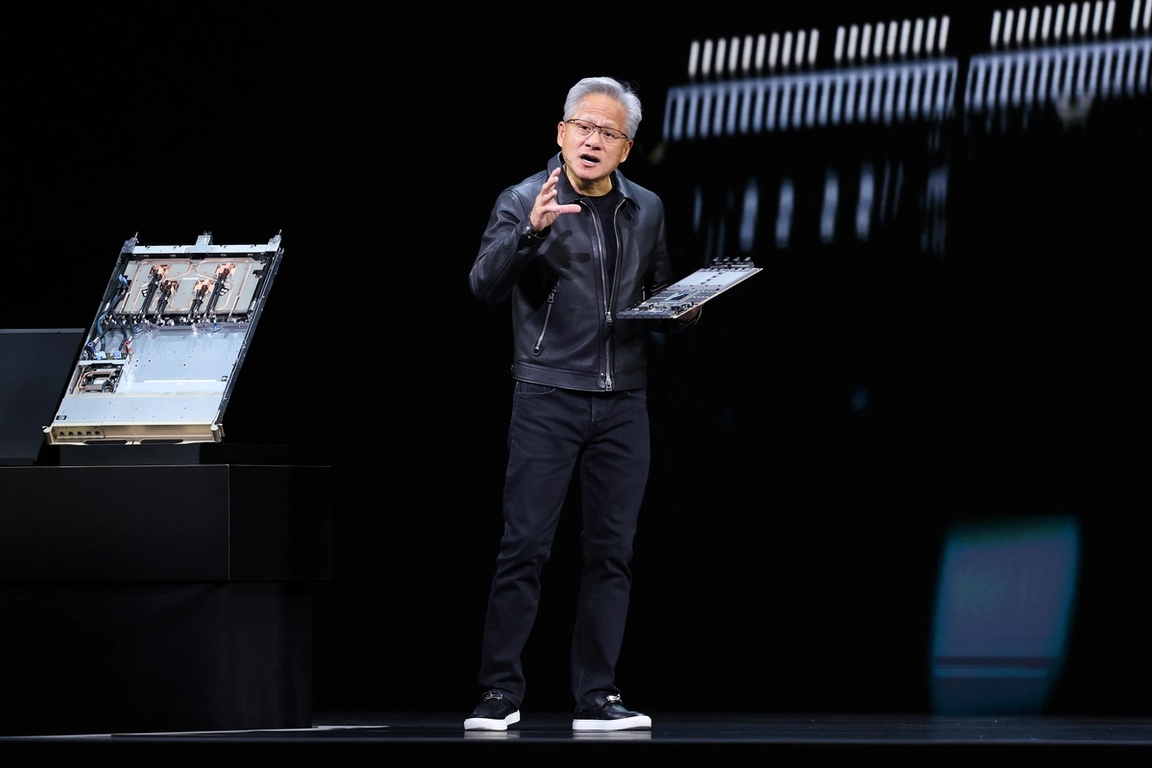 Anna Moneymaker/Getty Images Anna Moneymaker/Getty ImagesNvidia CEO Jensen Huang gave an ardently pro-US keynote address at the company’s AI conference on Tuesday, pledging new investments in the country and extending the chip giant’s slate of corporate partnerships. Huang, speaking in the nation’s capital, praised President Donald Trump, who said he will meet with the tech leader at the APEC summit in South Korea this week. Huang’s announcements, which included a $1 billion investment in Nokia and a supercomputing-quantum push, come just ahead of planned talks between Trump and Chinese leader Xi Jinping that could cover Beijing’s access to Nvidia’s advanced chips. |
|
Consumer confidence down, stocks up |
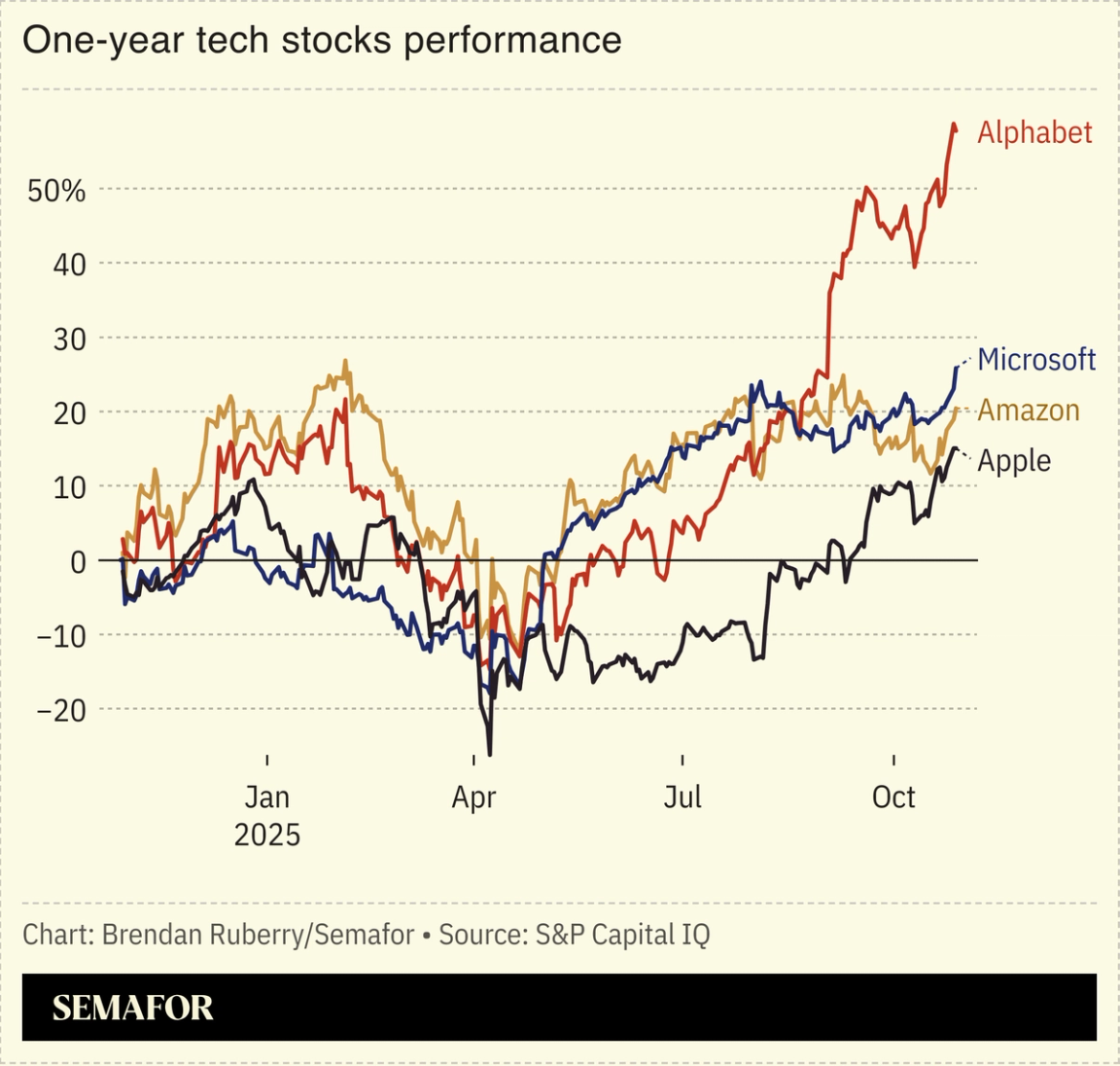 US consumer confidence fell yet again this month, even as Wall Street hit new highs. Americans are increasingly fretting about rising costs, the labor market, and now the government shutdown, a new Conference Board survey shows, but investors are largely shrugging off concerns as stocks surge ahead of this week’s anticipated interest rate cut by the Federal Reserve and Big Tech earnings. The data reinforces the US economy’s “K-shaped” nature, the chief economist at Navy Federal Credit Union wrote in a note, with low-income households not benefiting from the AI boom and record stock rallies as much as those earning more than $200,000: “There’s a real risk the AI boom leaves too many Americans behind.” |
|
US, S. Korea sign AI pact |
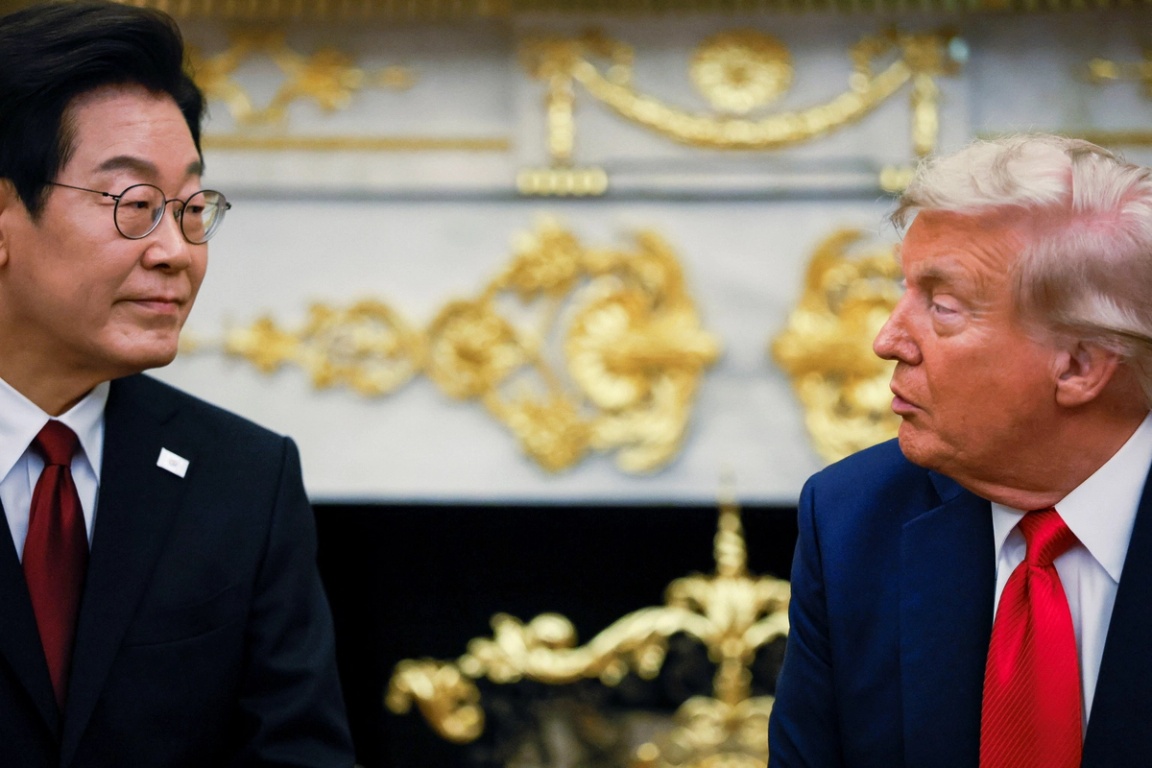 Brian Snyder/Reuters Brian Snyder/ReutersThe US and South Korea are set to strike a deal to cooperate on AI and quantum computing, even as contentious trade issues linger. The pact is aimed at securing an edge over China in the race for tech superiority, Bloomberg noted. Officials, though, are less confident that a trade agreement discussed in July will be finalized, as the countries remain deadlocked over the details of Seoul’s $350 billion investment pledge. Analysts raised similar concerns after Trump’s meeting with Japan’s new prime minister, which scored high on chemistry, but low on concrete trade breakthroughs. Trump’s Asia tour so far underscores the challenges he faces in “turning a series of eye-popping foreign investment pledges into reality,” Politico wrote. |
|
SEAsia could reassess US ties |
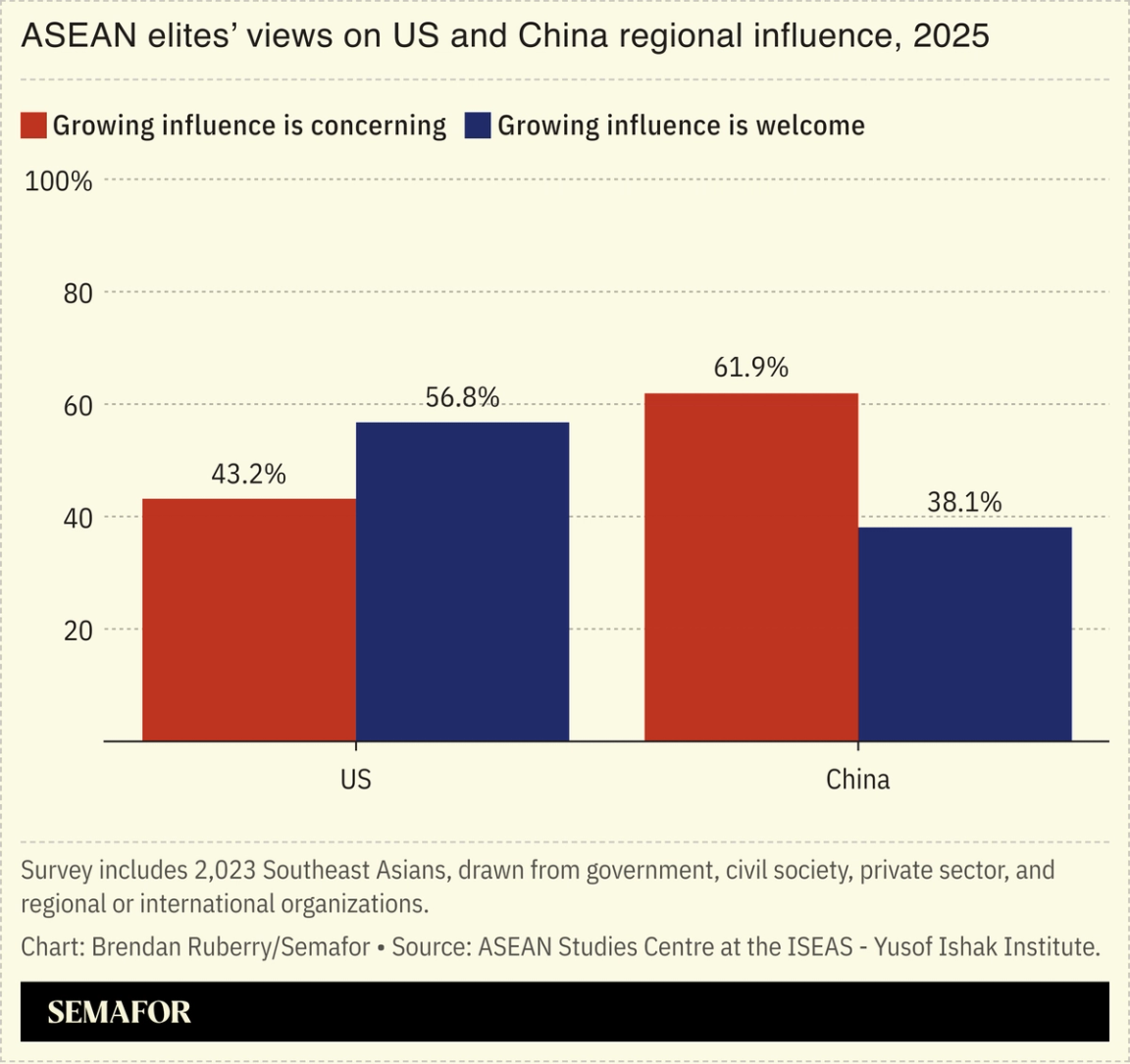 Lopsided trade deals with the US could force Southeast Asia to lose long-term confidence in Washington and push the region closer to China, analysts said. US President Donald Trump hailed agreements with four countries this week, but those pacts carry “clear costs and vague benefits for Southeast Asia,” Bloomberg analysts wrote. Tariffs have been a “wake-up call” for the countries, which see the new deals as “the least-worst option,” a Carnegie Endowment expert said. China, meanwhile, is increasing its regional influence, forcing Southeast Asian nations to confront “the harsh reality that maybe their preliminary instinct to hedge and work with both the US and China is not sustainable,” an expert told the Financial Times. |
|
Bill Gates shifts on climate stance |
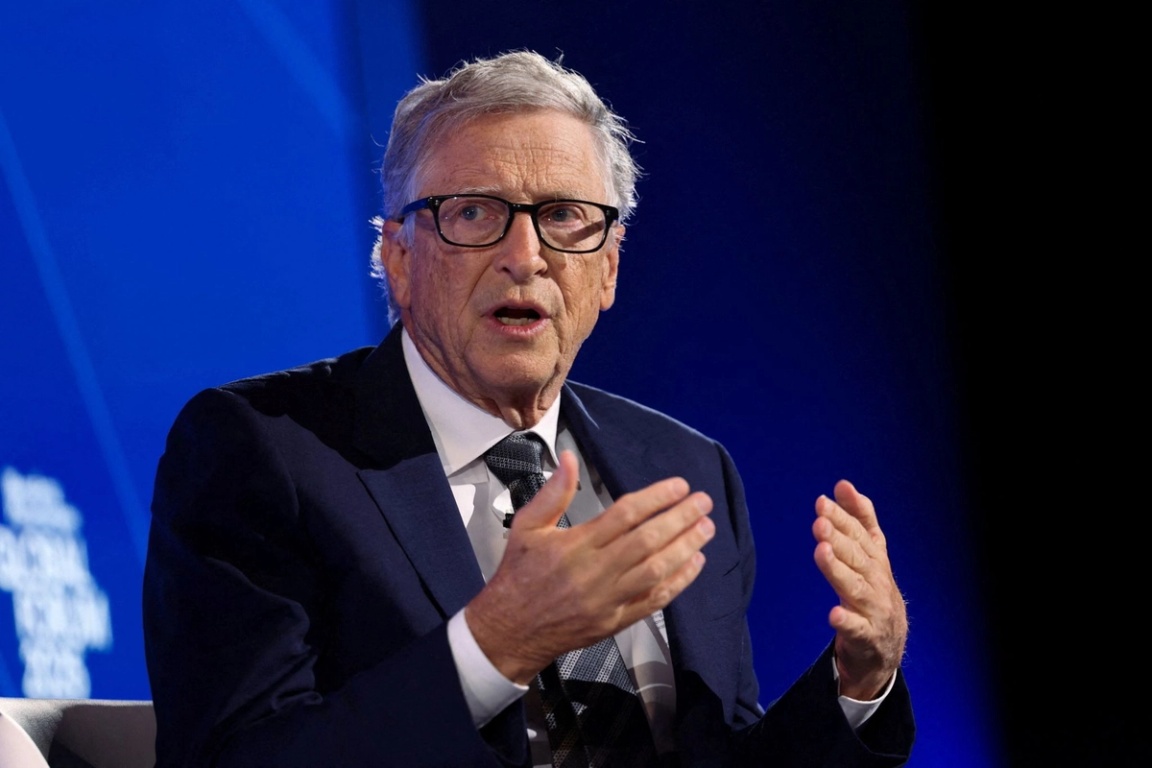 Caitlin Ochs/Reuters Caitlin Ochs/ReutersBillionaire philanthropist Bill Gates said he is no longer convinced climate change will “lead to humanity’s demise,” marking a shift in his thinking on the warming planet. The Microsoft co-founder, a prominent climate advocate, argued in a memo Tuesday that climate alarmism was directing too much focus on reducing emissions instead of making tangible improvements in peoples’ lives. A geosciences professor told The New York Times that Gates’ words would be misused by climate skeptics who pit efforts to fight climate change against foreign aid. But Semafor’s climate and energy editor wrote that “we should take Gates’ cue that an obsession with long-term emissions targets doesn’t always serve its intended purpose, and has been cause for plenty of counterproductive political backlash.” |
|
EV slowdown hits lithium-rich towns |
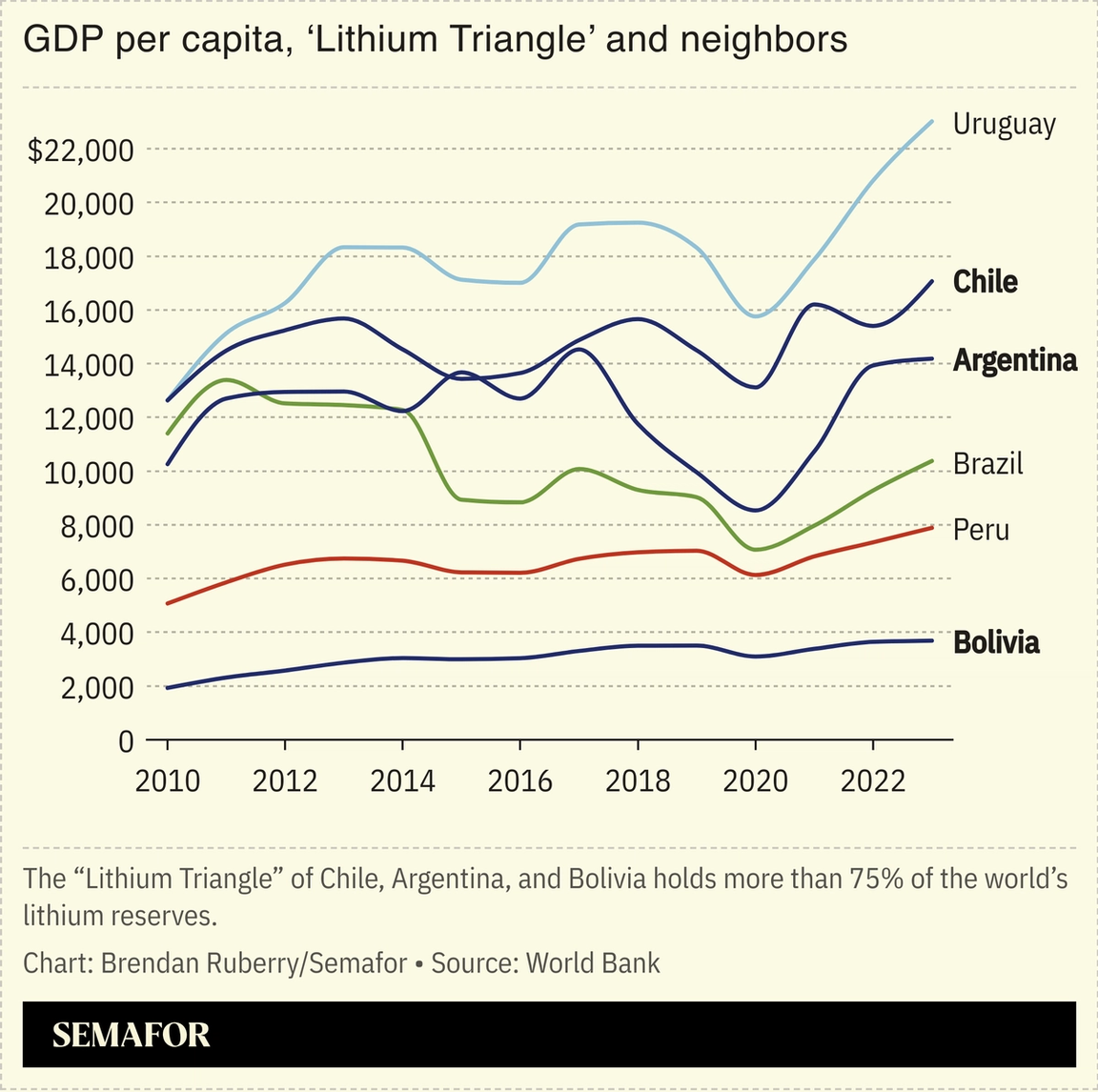 Dampened demand for electric vehicles is leaving South American mining towns in the lurch. The “Lithium Triangle,” which covers parts of Argentina, Chile, and Bolivia, saw a boom in the late 2010s as manufacturers rushed to extract the valuable resource, used in electric car batteries. But lithium prices have fallen sharply since peaking in 2022: EV adoption is largely plateauing in the US and Europe, while China — the global leader — is battling punishing price wars amid an economic slowdown. Small towns in the Lithium Triangle are feeling the ripple effects as mining companies pack up, Rest of World reported. “Drilling stopped, employment fell — we always knew these companies would only come for a season,” one local community leader said. |
|
 Soaring costs, shrinking community services, workforce shortages, and shifting federal policies are pushing America’s healthcare system to the brink. More Americans than ever are struggling with affordability, access, and quality of care. To examine what’s driving the crisis — and how to fix it — Semafor will convene leading experts for a forum on the future of US healthcare. Speakers include Dr. Rahul Gupta, President of GATC Health and former US Drug Czar; Dr. Sharmila Makhija, Founding Dean and CEO of the Alice L. Walton School of Medicine; and Dr. Fritz François, Executive Vice President and Vice Dean at NYU Langone. Together, they’ll explore practical reforms that could transform how Americans experience healthcare.
Nov. 18 | Washington, DC | RSVP → |
|
|
UK’s most damaging cyberattack |
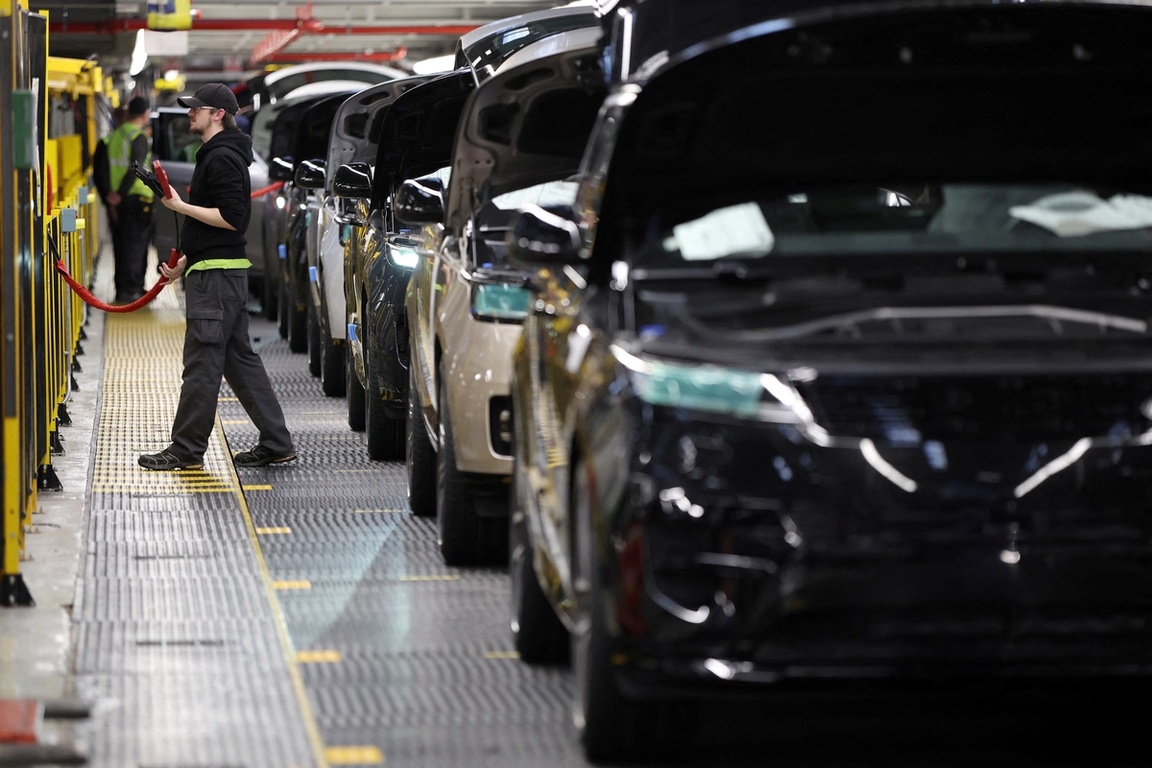 Phil Noble/Reuters Phil Noble/ReutersThe cyberattack on Jaguar Land Rover reduced UK car manufacturing by 27% to its lowest September level since 1952. It’s estimated to be the most damaging cyberattack in British history, according to an industry watchdog, costing the economy around $2.5 billion dollars and shutting down production not just in the UK but around the world. Computerization boosts industry efficiency, allowing just-in-time supply chains and minimal storage and delays, but leaves it vulnerable to hacks and crashes. Last week’s Amazon Web Services collapse, while not a cyberattack, similarly revealed the lack of distinction between the online and offline economies, while attacks also brought two major British retailers to their knees this summer. |
|
|